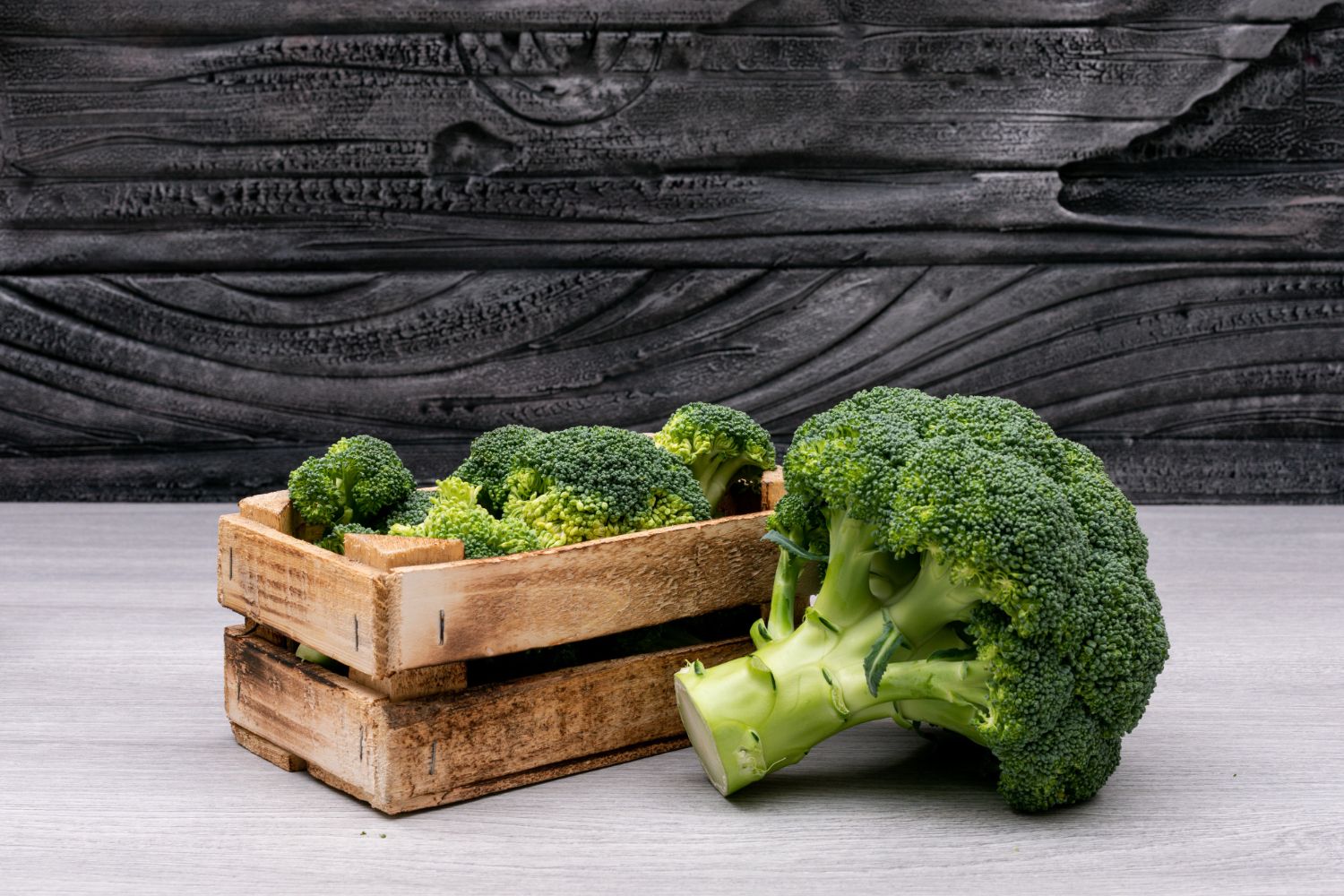When it comes to green veggies, broccoli shines brightly for its nutrition and taste. Let’s explore where it comes from and how versatile it is in cooking, and learn about its many health benefits.
Broccoli Nutrition Facts
Origin
Broccoli, scientifically known as Brassica oleracea, var. italica, is believed to have originated in Italy, tracing back to ancient Roman times. This green gem belongs to the cruciferous family, alongside kale, cabbage, and cauliflower.
Types of Broccoli
Calabrese Broccoli: This is the most common type, characterized by its large, compact head of florets.
Sprouting Broccoli: Featuring long, thin stems with smaller florets, this variety is harvested before the head fully forms.
Broccolini: A hybrid of broccoli and Chinese kale, it boasts long, tender stems and small florets.
Broccoli Nutrition Facts
Broccoli is renowned for its exceptional nutritional profile, offering a treasure trove of vitamins, minerals, and antioxidants.
Just one cup of cooked broccoli provides:
- Vitamin C: Boosts immunity and collagen production.
- Vitamin K : Crucial for maintaining strong bones and aiding in blood clotting.
- Fiber: Supports digestive health and promotes satiety.
- Potassium: Regulates blood pressure and fluid balance.
- Folate: Crucial for DNA synthesis and cell repair.
- Antioxidants: Including sulforaphane and quercetin, which combat oxidative stress and inflammation.
Health Benefits of Broccoli
- Cancer Prevention: Sulforaphane, a potent compound found in broccoli, has been linked to reduced cancer risk, particularly in breast, prostate, and colon cancer.
- Heart Health: The fiber, potassium, and antioxidants in broccoli contribute to cardiovascular wellness by lowering cholesterol levels and supporting blood vessel function.
- Digestive Support: Broccoli’s high fiber content aids digestion, prevents constipation, and fosters a healthy gut microbiome.
The nutritional density of broccoli is remarkable, making it a staple in any balanced diet. With its low calorie count and high nutrient content, broccoli offers a guilt-free indulgence for health-conscious individuals.
Calories in Broccoli
For those mindful of their calorie intake, broccoli is a godsend. With approximately 55 calories per cup of cooked broccoli, you can enjoy its wholesome goodness without worrying about excess calories.
Incorporating broccoli into your diet can reap myriad rewards, from enhanced immunity to improved digestion and beyond. Its versatility makes it easy to incorporate into various dishes, ensuring you never tire of its benefits.
Broccoli – How to Eat
From raw to cooked, broccoli lends itself to a multitude of culinary creations:
- Steamed: Simply steam broccoli until tender-crisp, then drizzle with olive oil and a sprinkle of sea salt for a delightful side dish.
- Roasted: Toss broccoli florets with olive oil, garlic, and your favorite herbs, then roast until caramelized for a flavorful accompaniment to any meal.
- Stir-fried: Add broccoli to stir-fries for a vibrant burst of color and crunch, pairing perfectly with tofu, chicken, or shrimp.
- Blanched: Blanch broccoli briefly in boiling water, then shock in ice water to preserve its bright green hue, ideal for salads or crudité platters.
- Grilled: Grill broccoli spears until charred and tender, then finish with a squeeze of lemon juice and grated Parmesan for a smoky, savory treat.
In conclusion, broccoli transcends its humble appearance to emerge as a nutritional powerhouse with a myriad of health benefits. Whether steamed, roasted, or stir-fried, this versatile vegetable adds a burst of flavor and vitality to any meal. So, embrace the broccoli revolution and savor its goodness for a healthier, happier you!

